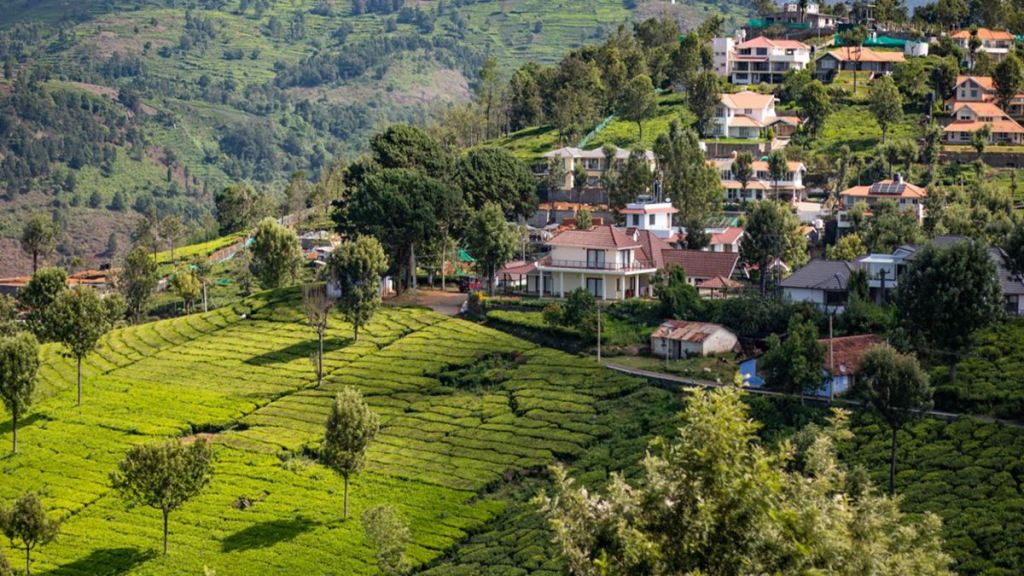Although there is a long history of affluent city-dwellers owning second homes in popular places such as Goa and Mussoorie, this trend has gained momentum since the pandemic. In addition to rising disposable incomes, this is due in part to remote work becoming increasingly common. Traditional options include tropical and ‘beachy’ destinations such as Goa and Alibaug, as well as more temperate towns such as Mashobra or Darjeeling. Coonoor is a relatively recent entrant to this club but has quietly become a popular choice among a small clutch of urban elite who are looking for an unspoilt but also convenient location for a second home.
Coonoor’s growing popularity has been driven both by social and logistical considerations. A critical mass of individuals with second homes in Coonoor has meant that it has achieved a certain cachet and reputation. Coonoor is also lucky to enjoy easy access from all major Indian cities, excellent road connectivity and mild and pleasant weather throughout the year. Collectively, these have allowed it to emerge as a sought-after destination for those seeking an escape from the noise and pollution of major Indian cities. It is particularly popular among successful entrepreneurs, industrialists and senior professionals from cities such as Coimbatore, Bangalore, Hyderabad and Chennai. Coimbatore is two hours away by car and offers direct flights not only to all major Indian cities but also to cities in the Middle East and SouthEast Asia, which has made Coonoor a popular option even for NRIs in those regions.
Unlike several of its counterparts, such as Goa, Coonoor has never been a mass tourist destination. The majority of visitors to Coonoor have traditionally been local tourists, primarily day-trippers from nearby districts. In fact, it has more in common with destinations like Alibaug, where the real estate market has been fueled by affluent Mumbaikars looking for weekend getaways. Although this has meant that Coonoor is relatively unknown, not least in comparison to its neighbour Ooty (Coonoor is often confused with Coorg), that has helped it retain a tranquil charm that is often lost when places become major tourist destinations.
Also Read: Retire Rich: How to retire with a corpus of over Rs 1 crore
Coonoor’s rapidly-growing popularity as an upmarket second home destination rather than a tourist hotspot is evident in the fact that while land prices have increased as much as five-fold over the past decade, the market for rentals is still nascent, as most residents prefer to retain their properties exclusively for personal use. Local regulations that limit the fragmentation of large land holdings are often seen as a hindrance but have also contributed to Coonoor remaining a somewhat exclusive locale. Stringent building regulations have helped it avoid the haphazard development and degradation experienced by some hill stations in the north, such as Mount Abu.
Although its emergence as a sought-after location for second homes is relatively recent, Coonoor and surrounding towns are hardly new developments. Traditionally inhabited by tribal communities such as the Todas, the British began to develop the Nilgiri hills for the purpose of tea and coffee plantations in the early 19th Century. The infrastructure that was created has allowed prominent institutions such as the Indian Defense Services Staff College to be based in the region since independence and memberships of colonial-era clubs and golf courses remain highly coveted.
Cumulatively, these have resulted in Coonoor’s popularity as a second home destination growing much faster than its popularity as a tourist destination. One hopes that its unique trajectory means that its inevitable development will not lead to the kinds of degradation experienced by towns such as Darjeeling and that Coonoor and the wider Nilgiris will continue to forge their own pattern while learning from the mistakes of others that came before them.
(By Ayesha Jhunjhunwala, Director, Coonoor Estates)
Disclaimer: Views and facts expressed above are those of the author. They do not necessarily reflect the views of financialexpress.com. Readers are advised to consult their financial planner before making any investment.

